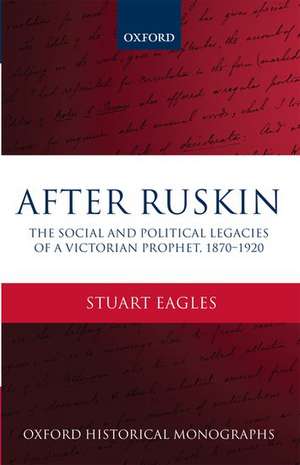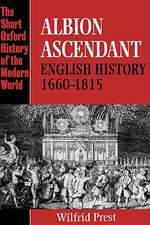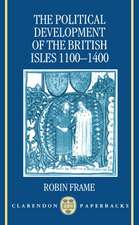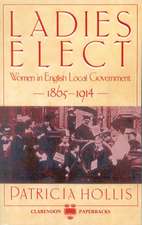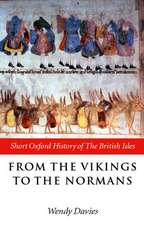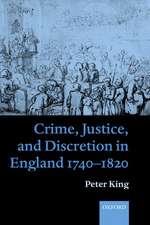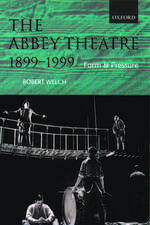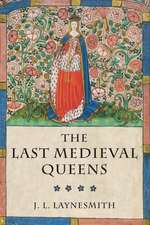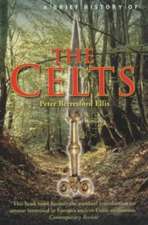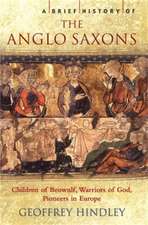After Ruskin: The Social and Political Legacies of a Victorian Prophet, 1870-1920: Oxford Historical Monographs
Autor Stuart Eaglesen Limba Engleză Hardback – 27 ian 2011
Din seria Oxford Historical Monographs
- 19%
 Preț: 497.26 lei
Preț: 497.26 lei - 18%
 Preț: 310.34 lei
Preț: 310.34 lei - 30%
 Preț: 539.99 lei
Preț: 539.99 lei - 15%
 Preț: 244.01 lei
Preț: 244.01 lei - 13%
 Preț: 532.53 lei
Preț: 532.53 lei - 30%
 Preț: 499.46 lei
Preț: 499.46 lei - 30%
 Preț: 497.67 lei
Preț: 497.67 lei - 30%
 Preț: 499.18 lei
Preț: 499.18 lei - 30%
 Preț: 498.68 lei
Preț: 498.68 lei - 30%
 Preț: 604.98 lei
Preț: 604.98 lei - 30%
 Preț: 497.63 lei
Preț: 497.63 lei - 24%
 Preț: 496.31 lei
Preț: 496.31 lei - 30%
 Preț: 498.68 lei
Preț: 498.68 lei - 22%
 Preț: 497.81 lei
Preț: 497.81 lei - 25%
 Preț: 556.27 lei
Preț: 556.27 lei - 14%
 Preț: 539.57 lei
Preț: 539.57 lei - 30%
 Preț: 500.29 lei
Preț: 500.29 lei - 13%
 Preț: 533.57 lei
Preț: 533.57 lei - 25%
 Preț: 569.72 lei
Preț: 569.72 lei - 30%
 Preț: 610.82 lei
Preț: 610.82 lei - 34%
 Preț: 1153.34 lei
Preț: 1153.34 lei - 51%
 Preț: 614.88 lei
Preț: 614.88 lei - 34%
 Preț: 1195.31 lei
Preț: 1195.31 lei - 34%
 Preț: 1035.84 lei
Preț: 1035.84 lei - 34%
 Preț: 1006.40 lei
Preț: 1006.40 lei - 29%
 Preț: 864.39 lei
Preț: 864.39 lei - 34%
 Preț: 1160.09 lei
Preț: 1160.09 lei - 34%
 Preț: 1432.67 lei
Preț: 1432.67 lei - 31%
 Preț: 328.46 lei
Preț: 328.46 lei - 34%
 Preț: 573.88 lei
Preț: 573.88 lei - 34%
 Preț: 1069.36 lei
Preț: 1069.36 lei - 34%
 Preț: 1004.62 lei
Preț: 1004.62 lei - 31%
 Preț: 329.49 lei
Preț: 329.49 lei - 34%
 Preț: 1153.28 lei
Preț: 1153.28 lei - 34%
 Preț: 1254.68 lei
Preț: 1254.68 lei - 34%
 Preț: 946.79 lei
Preț: 946.79 lei - 34%
 Preț: 962.63 lei
Preț: 962.63 lei - 34%
 Preț: 1126.38 lei
Preț: 1126.38 lei - 31%
 Preț: 469.27 lei
Preț: 469.27 lei - 23%
 Preț: 332.21 lei
Preț: 332.21 lei - 28%
 Preț: 374.93 lei
Preț: 374.93 lei - 34%
 Preț: 1049.14 lei
Preț: 1049.14 lei - 34%
 Preț: 1036.73 lei
Preț: 1036.73 lei - 51%
 Preț: 757.67 lei
Preț: 757.67 lei - 34%
 Preț: 1082.61 lei
Preț: 1082.61 lei - 34%
 Preț: 1155.39 lei
Preț: 1155.39 lei - 31%
 Preț: 328.53 lei
Preț: 328.53 lei - 34%
 Preț: 1110.12 lei
Preț: 1110.12 lei - 31%
 Preț: 487.75 lei
Preț: 487.75 lei - 34%
 Preț: 1153.41 lei
Preț: 1153.41 lei
Preț: 832.43 lei
Preț vechi: 1197.81 lei
-31% Nou
Puncte Express: 1249
Preț estimativ în valută:
159.31€ • 165.05$ • 132.95£
159.31€ • 165.05$ • 132.95£
Carte tipărită la comandă
Livrare economică 11-17 martie
Preluare comenzi: 021 569.72.76
Specificații
ISBN-13: 9780199602414
ISBN-10: 0199602417
Pagini: 318
Dimensiuni: 152 x 223 x 24 mm
Greutate: 0.53 kg
Editura: OUP OXFORD
Colecția OUP Oxford
Seria Oxford Historical Monographs
Locul publicării:Oxford, United Kingdom
ISBN-10: 0199602417
Pagini: 318
Dimensiuni: 152 x 223 x 24 mm
Greutate: 0.53 kg
Editura: OUP OXFORD
Colecția OUP Oxford
Seria Oxford Historical Monographs
Locul publicării:Oxford, United Kingdom
Recenzii
Eagles' Ruskin ... is a complicated figure. ... Eagles effectively traces Ruskins influence ... the depth and sure-footedness of the research is manifest. ... Eagless book so thoroughly traces the networks in which Ruskins influence operates ... Tracing Ruskins rich, often inconsistent ideas can be challenging even within a single essay, let alone throughout his entire life and afterlife.
... this fascinating book... a book which adds substantially to what is known about the reverberations of Ruskin's social and political ideas.
The strength of After Ruskin ... is in the local details. In spite of the fact that those details revolve so closely around one figure, and that what Eagles reveals is how very singular that figure was, his book should have a broader appeal. It offers insight into the varying impacts of both entrenched institutions (like universities) and fleeting forms of local cooperation (like suburban clubs, agricultural groups, and city museums) on the development of key liberal ideas. This carefully researched study in Ruskin's circle of influence participates in a wider conversation about the spread of certain strains of late-century liberalism.
Stuart Eagles's impressive study of the political and social influence of Ruskin ... is a very fine work of scholarship indeed and an important addition to our understanding of the British Ruskinian world ... Eagles has labored extensively in various archives to recreate [it] ... Eagles writes impeccably and with vivid turns of phrase ... The whole book, in fact so diligently researched and rich in detail seems to embody Ruskin's commitment to labor and meticulous care, a quality that its pages help us better to recognize as distinctively Ruskinian.
Eagles' exhaustive research ... sharply clarifies the networks of inter-connection that is the most concrete measure of Ruskin's significance for the late-Victorian generation.
Valuable... impeccably researched and elegantly written book
Scholarly, serious-minded, and balanced study... The manifest quality and integrity of After Ruskin recommends it on its own terms, but it is also an especially timely contribution, one that prompts readers to consider parallels between the 1870s when the interest in Ruskin as a social critic was first revived and our own deregulated times.
It is a real pleasure to open a book that has been created and produced to the highest possible standard with care and attention to every detail. It is an even greater pleasure to read it. Both scholarly and readable, this is a book that is accessible to Ruskinians and to a wider public... There is much unpublished material here. Eagles has explored and dug into archives near and far, and travelled the length and breadth of the British Isles in pursuit of discovering Ruskin's legacy...
This extremely well-written and thoroughly researched book, gives Ruskin a deeper social context, and sheds further light on the nature and scope of his unquestionable influence.
[After Ruskin] bring[s] home to the reader the extent of Ruskin's legacy and how its influence can still be felt today.
Eagles has produced a meticulously researched history of Ruskin's audiences and the institutions through which they sought to put his ideas into practice. ... readers will find that this book presents an absorbing, persuasive, and well-substantiated case for Ruskin's significance for modern British culture.
Eagles manages to capture the protean nature of Ruskin and convincingly explains the pervasiveness of his influence in the period. After Ruskin is historically rigorous and wide-ranging, drawing on evidence from detailed archival research, notable for its clear structure and elegant style, making it useful for academics and undergraduates alike.
This is a likeable book that Ruskin experts as well as novices can profitably read ... What makes this book a worthy addition is the close attention it pays to the more intimate connection between Ruskin and smaller groups of ethical do-gooders in the next two generations whose local contributions to the British variety of progressivism usually get lost in the big picture.
... this fascinating book... a book which adds substantially to what is known about the reverberations of Ruskin's social and political ideas.
The strength of After Ruskin ... is in the local details. In spite of the fact that those details revolve so closely around one figure, and that what Eagles reveals is how very singular that figure was, his book should have a broader appeal. It offers insight into the varying impacts of both entrenched institutions (like universities) and fleeting forms of local cooperation (like suburban clubs, agricultural groups, and city museums) on the development of key liberal ideas. This carefully researched study in Ruskin's circle of influence participates in a wider conversation about the spread of certain strains of late-century liberalism.
Stuart Eagles's impressive study of the political and social influence of Ruskin ... is a very fine work of scholarship indeed and an important addition to our understanding of the British Ruskinian world ... Eagles has labored extensively in various archives to recreate [it] ... Eagles writes impeccably and with vivid turns of phrase ... The whole book, in fact so diligently researched and rich in detail seems to embody Ruskin's commitment to labor and meticulous care, a quality that its pages help us better to recognize as distinctively Ruskinian.
Eagles' exhaustive research ... sharply clarifies the networks of inter-connection that is the most concrete measure of Ruskin's significance for the late-Victorian generation.
Valuable... impeccably researched and elegantly written book
Scholarly, serious-minded, and balanced study... The manifest quality and integrity of After Ruskin recommends it on its own terms, but it is also an especially timely contribution, one that prompts readers to consider parallels between the 1870s when the interest in Ruskin as a social critic was first revived and our own deregulated times.
It is a real pleasure to open a book that has been created and produced to the highest possible standard with care and attention to every detail. It is an even greater pleasure to read it. Both scholarly and readable, this is a book that is accessible to Ruskinians and to a wider public... There is much unpublished material here. Eagles has explored and dug into archives near and far, and travelled the length and breadth of the British Isles in pursuit of discovering Ruskin's legacy...
This extremely well-written and thoroughly researched book, gives Ruskin a deeper social context, and sheds further light on the nature and scope of his unquestionable influence.
[After Ruskin] bring[s] home to the reader the extent of Ruskin's legacy and how its influence can still be felt today.
Eagles has produced a meticulously researched history of Ruskin's audiences and the institutions through which they sought to put his ideas into practice. ... readers will find that this book presents an absorbing, persuasive, and well-substantiated case for Ruskin's significance for modern British culture.
Eagles manages to capture the protean nature of Ruskin and convincingly explains the pervasiveness of his influence in the period. After Ruskin is historically rigorous and wide-ranging, drawing on evidence from detailed archival research, notable for its clear structure and elegant style, making it useful for academics and undergraduates alike.
This is a likeable book that Ruskin experts as well as novices can profitably read ... What makes this book a worthy addition is the close attention it pays to the more intimate connection between Ruskin and smaller groups of ethical do-gooders in the next two generations whose local contributions to the British variety of progressivism usually get lost in the big picture.
Notă biografică
Stuart Eagles was born in Reading and studied English at the University of Lancaster, where he wrote a Master's dissertation on Dickens, Ruskin, and Victorian Political Economy. He completed a D.Phil on Ruskin's social and political legacy in Britain at The Queen's College, University of Oxford, and is now writing a monograph on Ruskin's influence in Russia. He is the Secretary of the Guild of St. George, editor of its journal, The Companion, and the charitys webmaster. A distinguished member of the Ruskin Seminar, University of Lancaster, he is a member of the advisory board of the Ruskin Review and Bulletin.
